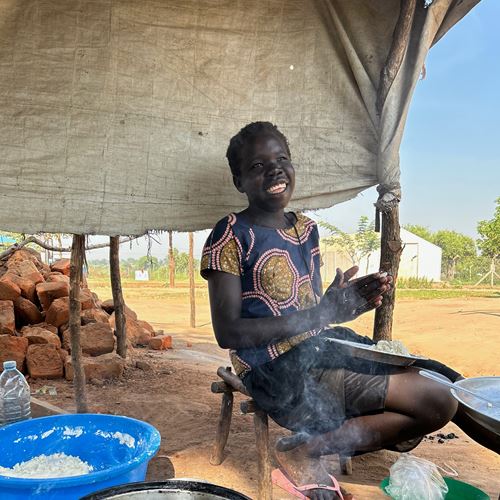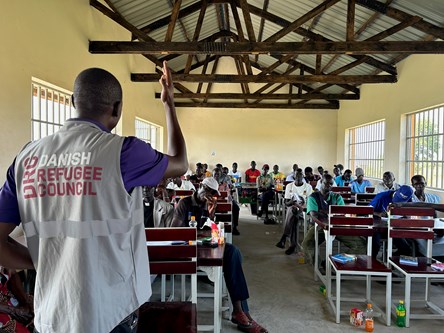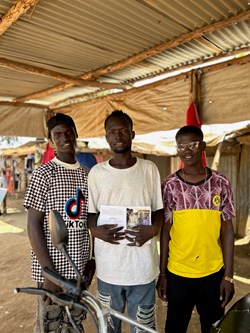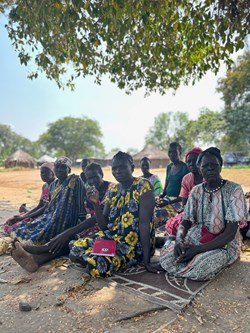New report from the ASPIRE project: Seeking Solutions
We are excited to announce the results of the second-year findings of ASPIRE. Building on ethnographic data from South Sudanese refugees in Uganda and Kenya, the 2024 report draws attention to the landscape of local actors’ engagement in conflict-handling – both statutory and community-driven – comparing Kenyan and Ugandan integrated refugee settlements.

Seeking Solutions – South Sudanese refugee endeavours among multiple possibilities in Kenya and Uganda
ASPIRE (Aspiring for Peace and Inclusion Research) is a long-term ethnographic research project that DRC is implementing with University of Copenhagen, in partnership with UNHCR, funded by EU INTPA. Building on ethnographic data from South Sudanese refugees in Uganda and Kenya, the project investigates and compares people’s efforts for peaceful coexistence and engagement with authorities and humanitarian, development, and peace (HDP) actors over a period of 15 years.
Navigating a Landscape of Possibilities
The 2024 report draws attention to the landscape of local actors’ engagement in conflict-handling – both statutory and community-driven – comparing Kenyan and Ugandan integrated refugee settlements. The report suggests that when South Sudanese refugees navigate this landscape of possibilities, they consider which options promise the most beneficial outcomes, often seeking lasting arrangements to the issue at stake in which customary actors play a critical role.
Based on approximately 450 cases of conflict and conflict handling that the project has followed through peer researchers for weeks, months and years during Phase 1 of ASPIRE, the report highlights an urgent need for recognising the efforts and the local mandates of key community-based actors and institutions, including customary actors. Better mapping, analysis and understanding of these local actors’ mandates, practices and gaps, is critical for adjusting support from humanitarian, development and peace actors to become more relevant. It also highlights the high capacities of many local actors, brining important opportunities for donors and global commitments for more locally-led support.
Preliminary findings have been discussed with donors, stakeholders and refugees in Kenya and Uganda by the end of 2024, to receive their feedback and suggestions. The report includes a chapter summarising these important points along with a discussion of questions and topics to be explored in the coming years of research.
Find the report here: ASPIRE Annual Report 2024





